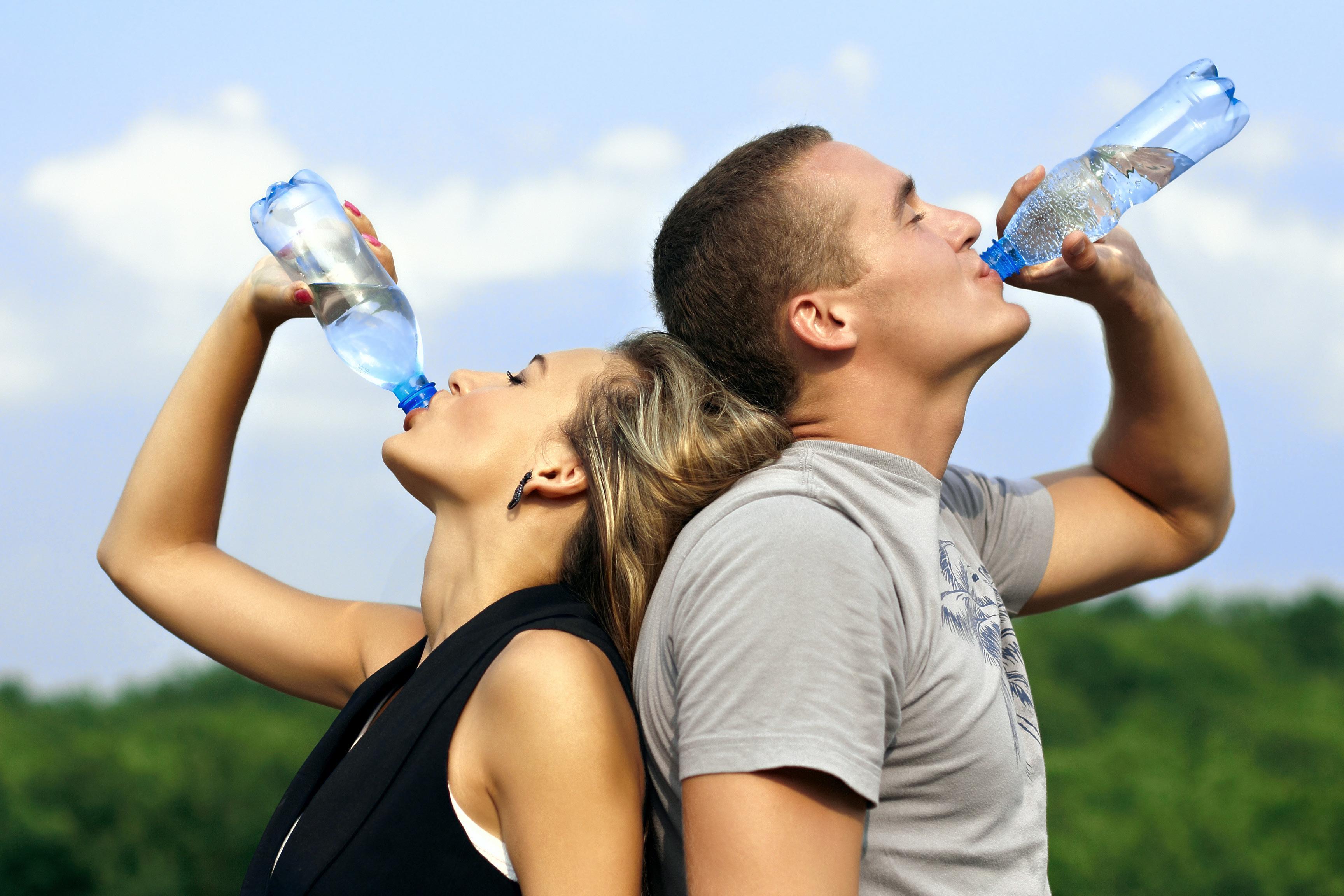Remaining Hydrated:
- Include a glass of water with every meal.
- Don’t wait until you fell thirsty to drink water.
- Avoid alcohol, fizzy and coffee, as these are diuretics. They increase urine production, taking water out of the body.
- Add lemon juice, mint leaves, etc. to water, to make it easier to drink. Ice cold water is also more enjoyable to drink.
Suggested Modifications to your Current Daily Fluid Intake:
- To stay well hydrated, try drinking 250ml of water with each of your meals throughout the day.
- When having an alcoholic drink, have one glass of water for every drink.
- Increase water intake during and directly after exercise to replace lost fluid.
Pre Competition Fluid Intake:
- Ensure are well hydrated before starting any physical activity. Drink as much water as possible, around 1-2 glasses.
Competition Fluid Intake:
- If training/competing for less than 60 minutes or at a low intensity, water is an ideal fluid to drink during competition. Drink at regular intervals throughout competition.
- If training for longer than 90 minutes, use a sports drink and try and consume some every 20 minutes. This will replace fluid and electrolytes that are been lost through sweat, and also top up glycogen/carbohydrate stores.
Post Competition Fluid Intake:
- It is important to replace both fluids and electrolytes post competition, (electrolytes, especially when performing physical activity or in very hot conditions for longer than 90 minutes.) This can be achieved by consuming either a sports drink or water and some salty foods.
The Effect of Substances on Fluid Intake and Activity Levels:
Electrolyte Substances:
These are added to sports drinks to replace the salts lost through sweat. They maintain fluid balance, preventing the body from suffering from and gastrointestinal discomfit.
Sodium:
Sodium enhances the absorption of water and helps to maintain fluid balance. It makes you feel thirsty, making you drink more. Lack of sodium, leads to an imbalance and can cause cramping.
Alcohol:
Will dehydrate the body due to its diuretic properties, and cause you to have poor reflexes, create problems with hypoglycaemia, and decrease overall performance.
Caffeine:
Caffeine enhances performance by about 11 %, and leads to clearer thinking and greater concentration. If taken in large doses it can lead to stomach discomfit, and diarrhoea.
Liquid Supplements:
A liquid meal will leave the stomach twice as quick as a solid meal, leaving you feeling lighter as your body isn’t trying to break it down. It will also have a higher fluid content than a solid meal.
Water:
You can only drink and store so much water before your body will start to get rid of it through producing more urine. Drinking too much water will lead to an electrolyte imbalance causing gastrointestinal distress. But drinking normal levels of water will reduce the risk of dehydration. This will lead to dehydration very quickly.
What are the Signs of Dehydration?
- Thirstiness
- Feel lethargic, tired and irritable
- Headaches, dizziness
- Increased heart rate
- Drop in blood pressure
- Urine changes colour, becoming dark and smelly
What are the Effects of Dehydration?
- The heart has to pump harder to maintain the volume of blood it delivers to the organs and tissues, which leads to the following conditions.
- Decreased blood flow to the kidney can cause kidney failure.
- Decreased blood flow to the brain will lead to confusion and impairment of both cognitive function and co-ordination.
- Reduced blood flow to skin, causes the body to struggle to sweat, leading to a rise in core temperature as the body can’t dissipate heat.
- When exercising in a hot environment, it will cause the body to sweat more to lower core temperature. This leads to dehydration, which in turn leads to heat exhaustion if symptoms aren’t picked up.
- When exposed to the sun for long periods, and you aren’t producing enough sweat (due to the reduced blood flow to the skin) to lower core temperature, it may lead to heat stroke.
Cramping……………………………….. Should you drink water? Should you add salt?
There are lots of ideas around what causes muscle cramps.
One of these myths are, that if you only drink water and don’t add salts, then you will dilute your electrolytes to create an imbalance, but the reality is that no one really knows what causes cramping, and there has never been any conclusive studies.
Steps to Managing Dehydration
- Read the signs of dehydration carefully to know what stage they are at.
- Start by introducing plain water until the urine runs clear, if in a mild state of dehydration.
- An electrolyte drink or very salty meal plus water should be used in the case of mild to moderate dehydration. This will replace fluid lost plus electrolytes, with sodium in particular been very helpful in making you feel thirsty, making your drink more.
- If dehydration had led to unconsciousness or fainting, then emergency care is needed immediately. The use of intravenous fluids would be used in these situations.
Practical Management to remaining Hydrated
- Weigh yourself before and after a training session or competition to gauge how much fluid you have lost. The weight lost needs to be replaced with fluid.
- Wear appropriate clothing for the conditions you are training in, allowing you to keep cool and minimise the amount you sweat.
- Drink water at regular intervals when training, rather than waiting until you are thirsty. If you do feel thirsty, stop and drink water.
- If you are training in a hot environment or for longer than 90 minutes, use an electrolyte drink to replace fluid and electrolytes lost through sweat.





Leave A Comment